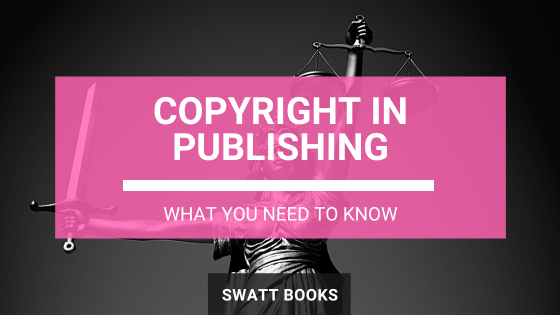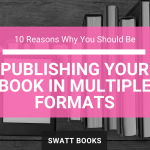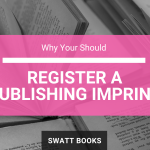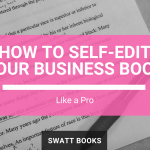I have long put off writing an article on copyright in self-publishing; mainly because it is not my area of expertise. However, it is an area where I see a lot of authors making mistakes that could potentially be very damaging simply through making assumptions. So, I’m going to give you a high-level overview of the things you need to know about copyright and how it pertains to you as a self-publishing author, and then leave you with a list of resources on where you can find more information.
In this article I’m going to touch on:
- What is copyright
- Copyright overseas
- Copyright duration
- Using copyrighted material
- Protecting your copyright
- So, let’s get into it.
What is copyright
Copyright is a form of intellectual property protection that is granted to the original creator of a work by law and prevents others from using it without the creator’s permission. It is assigned automatically whenever an individual creates a piece of work that is original and exhibited some degree of labour, skill or judgement in its creation[1].
Copyright protects your book by preventing people from[2]:
- copying your work
- distributing copies of it, whether free of charge or for sale
- renting or lending copies of your work
- performing, showing or playing your work in public
- making an adaptation of your work
- putting it on the internet
It is worth noting that copyright can be owned by more than one individual and can also be sold or licenced to a third party.
Copyright notice
Even though copyright is granted automatically and does not require any form of prior registration, it is in your best interest as an author to include a copyright notice in your book to deter copyright infringement. This notice simply makes it clear that your work is subject to copyright and provides a means of identifying you as the copyright owner.
I copyright notice does not need to be complicated. It consists of the word ‘Copyright’, the copyright symbol (©), the year of publication, and the name of the copyright owner. For example:
Copyright © 2021 Samantha Pearce
Copyright ownership
Copyright ownership can get a little complicated, especially when it comes to books, but in the majority of cases, the author of the book is considered the first owner and copyright holder. There are 4 areas where this ownership gets a little murky:
- Works created for an employer: If you write a book as an employee for a company, the company/employer is considered the first owner.
- Commissioned works: The exception to the rule is if you were commissioned to write the book by a company and were working under a “contract of services”. In which case the ownership remains with the freelancer/contractor unless there is a contractual agreement handing copyright to the company on payment.
- Joint authors: If two or more people contributed to a single book and the contribution of each author is not distinct from that of the other authors, they all may be considered joint owners of the copyright.
- Co-written works: If the contributions of each author are distinct or separate (for example each writes a specific chapter), then copyright ownership is assigned to each part
Moral rights
There is a secondary aspect to copyright that authors should be aware of, and that is of Moral Rights. Moral rights are concerned with the protection of your reputation as an author. They exist separately from economic rights and cannot be sold or given away, but they can be waived. Some publishing contracts will request you waive your moral rights, but this is not generally recommended. Two fundamental moral rights belong to the author of a copyrighted work:
- The right to claim authorship
- The right to object to any treatment or use of the work that would be “prejudicial to personal honour or reputation”.
Copyright qualification
Even though copyright protection is granted automatically; because it is under the jurisdiction of national state law, there are a couple of requirements for a work to qualify under UK copyright law. They are either:
- The author is a British citizen/national/subject/protected person, an individual resident in the UK at the time of publication, or a company/organisation incorporated by law in the UK
- Or first publication of the work took place in the UK
Each country has its own copyright laws, so it is worth checking with your regional government as to the copyright law is in your country. Some countries have accepted a more international copyright convention; please see the next section on Copyright overseas for more.
Copyright overseas
Even though copyright law is under the jurisdiction of national state law, your work could be protected by copyright in other countries through international agreements such as The Berne Convention.
The Burne Convention was first adopted in 1886 as an agreement to honour the rights of all authors who are nationals of the member countries of the Convention of which there are currently 179 (a full list of convention signatories is maintained by the WIPO).
The Convention sets out that for the period of copyright, the copyright owner has the following exclusive rights[3]:
- The right to authorise translations of the work.
- The exclusive right to reproduce the work, though some provisions are made under national laws which typically allow limited private and educational use without infringement.
- The right to authorise public performance or broadcast, and the communication of broadcasts and public performances.
- The right to authorise arrangements or other types of adaptation to the work.
- Recitation of the work, (or of a translation of the work).
- The exclusive right to adapt or alter the work.
Although the Convention sets out a copyright duration, this is in fact the minimum period of protection provided by signatory countries. The national laws of individual countries often provide a longer copyright duration. Please see the next section on Copyright duration for more detail on how long that is.
Copyright duration
As mentioned above, the Berne Convention set out a minimum copyright period, which is the life of the author plus 50 years. However, national copyright law stipulates how long copyright lasts in that particular nation, so the actual duration can vary between nation-states.
In the UK, copyright protection starts as soon as the work is created, but the length of copyright depends on the type of work. For written work such as books, that period is the life of the author plus 70 years from the end of the calendar year in which the author died. Where the work has more than one author, the copyright expires 70 years after the death of the last surviving author.
Expired copyright
Once the term of copyright protection expires, the work falls under a public domain licence. This means that the work in effect becomes public property and may be used freely. Once a work has entered the public domain, no one can claim the copyright back.
Using copyrighted work
By the very definition of copyright, you cannot copy or use copyright material without permission. You may only use the work of others if:
- Copyright has expired.
- Your use of the work is fair dealing as defined under the 1988 Copyright Designs and Patents Act (UK) – see below.
- Your use of the work is covered under a licensing scheme that you have subscribed to and the copyright holder is a member of.
- The copyright holder has given you permission.
In all of the above situations, the creator may still retain their Moral Rights regarding how their work is used.
Fair Dealing
Fair dealing (also referred to as fair usage, free use, or fair practice) is a framework designed to allow for the lawful use or reproduction of work without having to keep permission or infringe on the interests of the copyright owner.
The Copyright, Designs and Patents Act of 1988 outlines three instances where fair dealing is a legitimate defence for using copyrighted work[4]:
- If the use is for the purposes of research or private study
- If it is used for the purposes of criticism, review or quotation
- Where it is utilised for the purposes of reporting current events (this does not apply to photographs)
It’s this second instance of quoting other work that particularly relates to authors. The Society of Authors advises that limited citations of a work are allowed if used solely for the purpose of critique or review under the following conditions:
- The work is publicly available
- The source of the work is acknowledged
- The quoted material is supplemented by topical discussion or assessment
- The extent of material quoted is considered an acceptable amount for the purpose of review
However, it is worth noting that a statutory definition of what constitutes fair dealing does not exist. If a copyright enforcement claim is made in a fair dealing case, it will always come down to fact, degree and interpretation of each case. Factors that have been identified by the courts as relevant in determining whether a particular dealing with a work is fair include[5]:
- does using the work affect the market for the original work? If the use of a work acts as a substitute for it, causing the owner to lose revenue, then it is not likely to be fair
- is the amount of the work taken reasonable and appropriate? Was it necessary to use the amount that was taken? Usually, only part of a work may be used
The relative importance of any one factor will vary according to the case in hand and the type of dealing in question.
Protecting your copyright
Copyright protection is automatic under national and international law, however there a few things you can do to further protect your work.
The easiest thing you can do is to ensure that you use a correctly worded copyright notice as part of your book. Though, as mentioned above, a copyright notice is not required to enforce copyright, displaying a notice demonstrates that you have an awareness of copyright and that you take infringement of your work seriously.
Copyright registration
If you are especially concerned about the possibility of your work being used without your permission, you can register your work with a copyright registration service, such as The UK Copyright Service. Registration provides verifiable proof of the date and content of your work, but be aware that there are costs involved in registration.
Copyright evidence
It is a good working practice to keep supporting evidence of your work to prove your copyright ownership if someone attempts to copy your work.
Copyright evidence falls into two categories:
- Evolution of ideas: This is evidence of the progression of your work such as early drafts, a synopsis, or rough sketches that prove the work progressed over time as opposed to being copied from somewhere else.
- Footprints: This is normally evidence inserted into a finished document that can identify you as the author, such as deliberate mistakes, hidden date, or watermarks.
Enforcing your copyright
Unfortunately, no matter how many precautions we take, breaches of copyright (known as ‘infringement’) do take place. If you are faced with that situation, here are some steps that you can take:
- Be clear that an infringement has taken place; that it is not a case of incidental inclusion and that it is beyond the realms of fair dealing.
- Gather your evidence of the infringement which should include as a minimum a copy of the infringing work, a copy of your original work, and your copyright evidence discussed above.
- Contact the infringing party and request they stop using your work or come to an agreement with them for their continued use (such as a licence).
- Use mediation if your initial request was ignored or not resolved. The Intellectual Property Office offers a copyright mediation service but be aware that the fees involved in mediation depend on the type and length of the mediation session.
- Your final recourse is to take legal action. It is a criminal offence to breach copyright, so you can file for legal proceedings through the Intellectual Property Office or the courts. If things progress this far, you may also want to engage an intellectual property professional such as an IP lawyer to help you.
Copyright resources
Finally, here is a list of resources that you can use to get more information. Your first port of call should be government resources, seeing as they are the ones who write copyright law. There are also several copyright licencing services that can help you track down copyright ownership for work that you would like to use in your book and to manage licences from other people wishing to use your content. Finally, there are copyright registration services that can help you to further reinforce your copyright ownership.
Government Resources
UK Government Resource on Patents, Trade Marks, Copyright and Designs (https://www.gov.uk/browse/business/intellectual-property)
UK Government Resource on Intellectual Property (https://www.gov.uk/topic/intellectual-property/copyright)
UK Intellectual Property Office (https://www.gov.uk/government/organisations/intellectual-property-office)
Copyright Licencing Services
Copyright Licensing Agency (https://www.cla.co.uk)
Publishers’ Licensing Services permissions request tool (https://plsclear.com)
Authors’ Licensing and Collection Society (https://www.alcs.co.uk)
Copyright Registration Services
The UK Copyright Service (https://copyrightservice.co.uk)
CopyRight (https://copyright.co.uk)
References
[1] Source: https://copyrightservice.co.uk/copyright/copyright, accessed 18/03/2021
[2] Source: https://www.gov.uk/copyright, accessed 18/03/2021
[3] Source: https://copyrightservice.co.uk/copyright/p08_berne_convention, accessed 18/03/2021
[4] Source: https://www.bl.uk/business-and-ip-centre/articles/fair-use-copyright-explained, accessed 19/03/2021
[5] Source: https://www.gov.uk/guidance/exceptions-to-copyright#fair-dealing, accessed 19/03/2021






One page, one professional license [url=https://creativecommons.org/choose/results-one?field_attribute_to_url=https://bit.ly/32P3Lzb]https://creativecommons.org/[/url]
Thanks Danielunces. Creative Commons is a great resource for images and content that can be freely used, but be aware that the CC licence only applies to content listing on the site and any use of the content still requires you to attribute copyright to the original creator as stated on the CC assets page for that content.